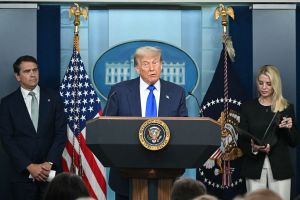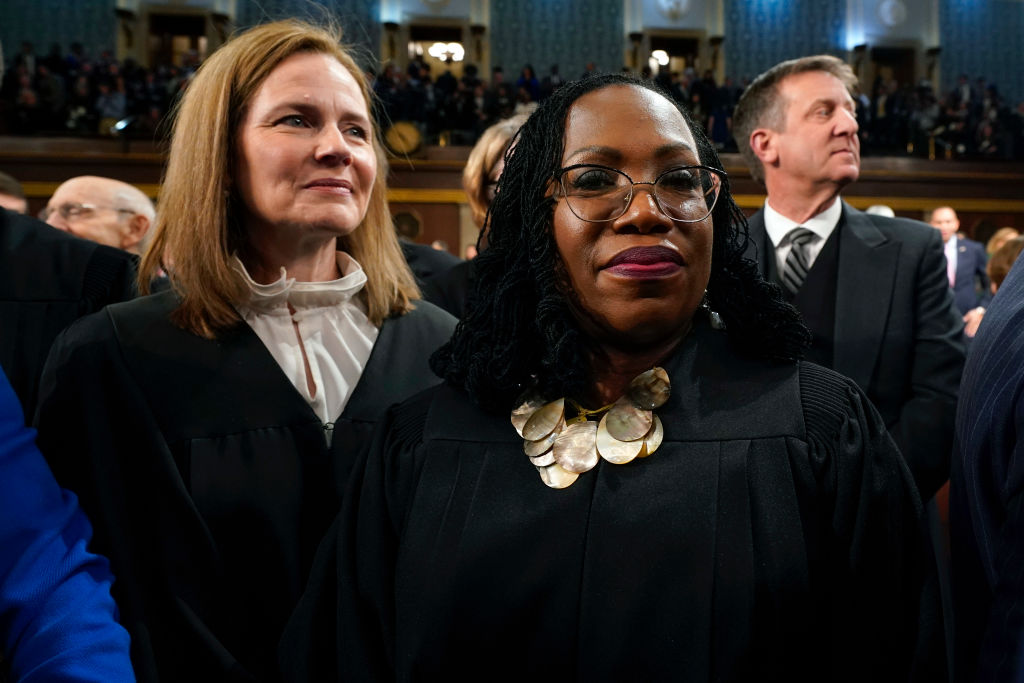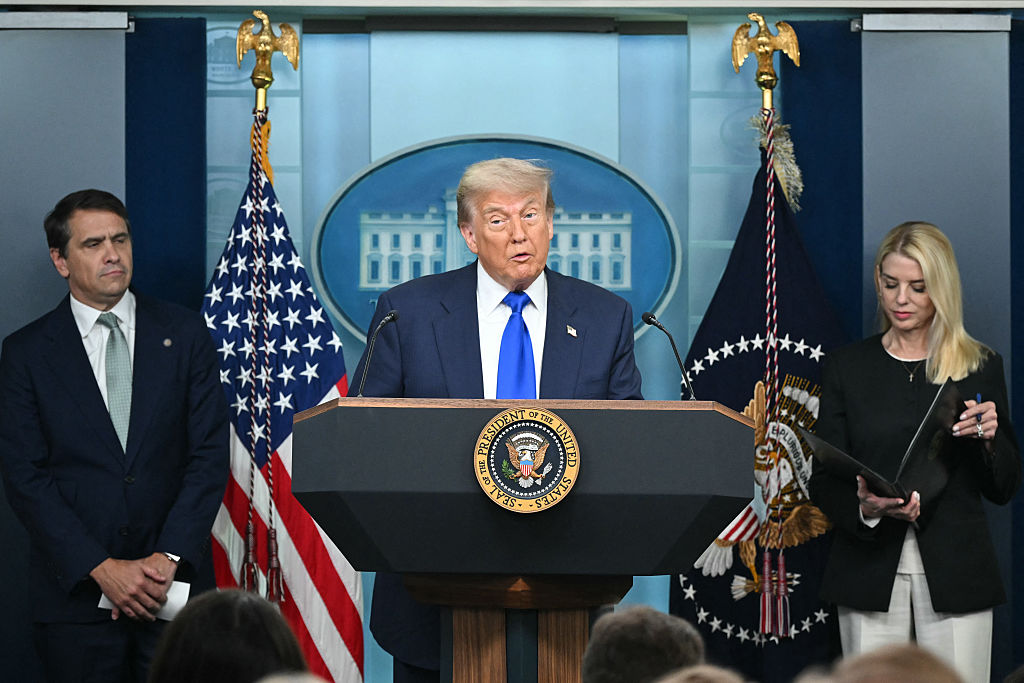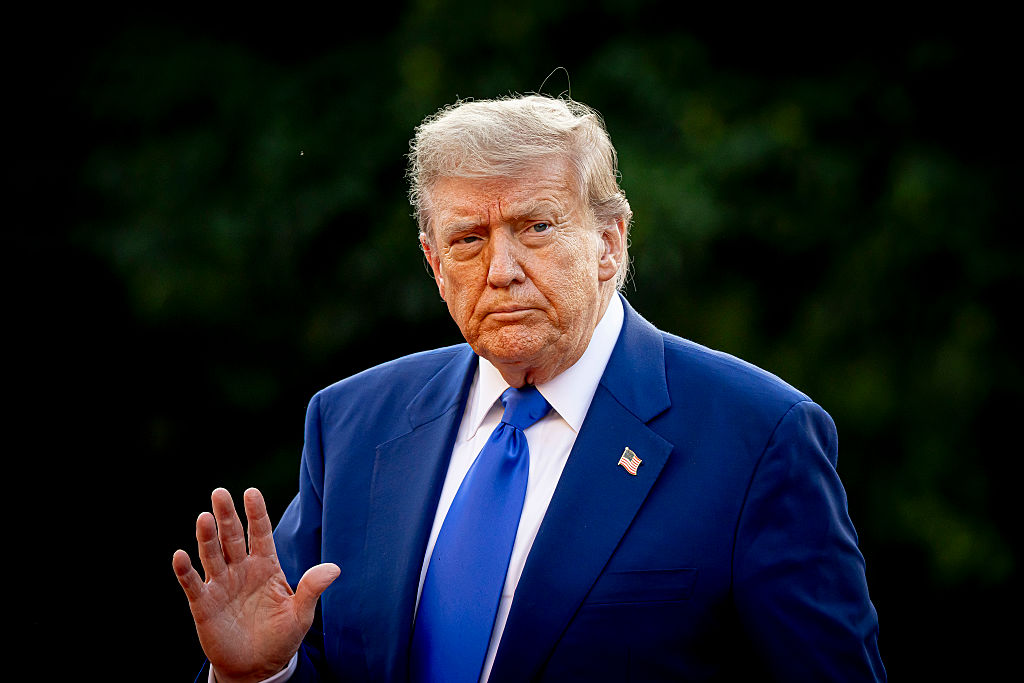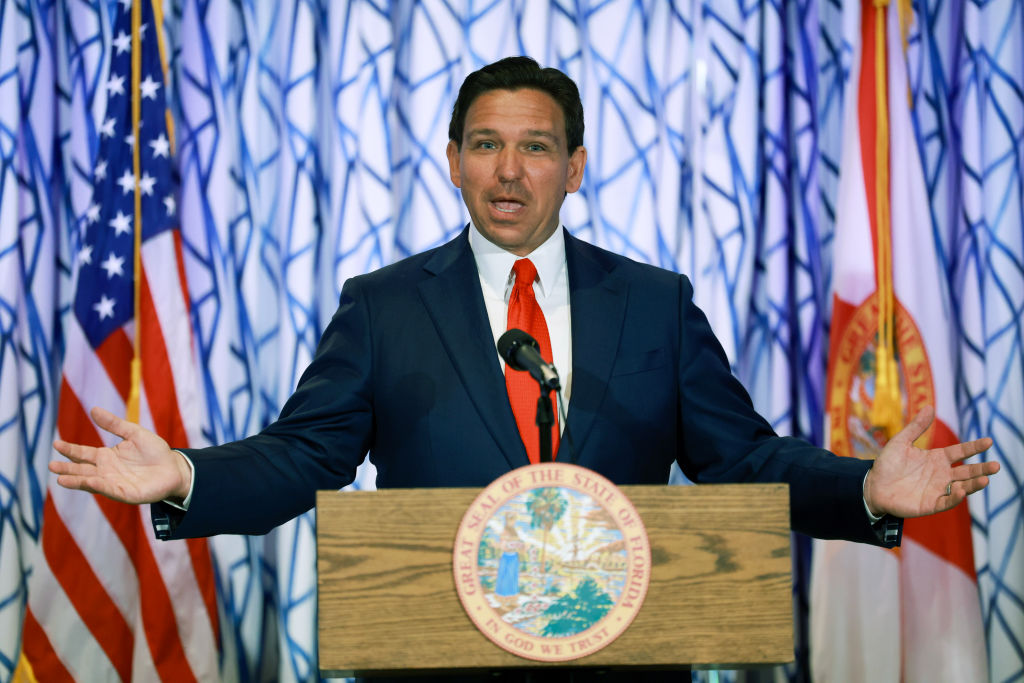Watch out, Twitter — Donald Trump doesn’t need you anymore. He now has his own Presidential Alert system that can send messages right to every cell phone in the country. Twitter allowed Trump to bypass the traditional media when he wanted to; the service is a sterling example of ‘disintermediation’ and the direct connection that can now be established between celebrities and the public. But with his new text alerts, Trump can well and truly speak directly to people without any fear of censorship by a tech zillionaire.
Or at least he could if the Presidential Alert system actually were such a thing, and not just a 21st-century analogue to the dowdy old Emergency Broadcast System that used to transmit a beep to TVs and radios once a month. The text alerts are not a Trump innovation — he’s the first president to test them out, but the system was authorised and developed under the George W. Bush and Barack Obama administrations. And sadly, the president doesn’t personally send out the messages, the Deep State does — specifically, the professional bureaucrats of the Federal Emergency Management Agency. (I joke, but FEMA has indeed been the subject of conspiracy theories dating back to the 1980s that claim the agency is part of a plot to suspend the Constitution by way of a real or manufactured disaster.)
In short, the Presidential Alert system as a whole is every bit as boring as the alert that was sent out earlier this week. The theory behind the alert, like the earlier Emergency Broadcast System and the wider Emergency Alert System that replaced it, is that in the event of some national crisis, authoritative government information can be sent out to everyone. The EBS was sufficient when mass-media broadcasts on television and radio could be expected to reach all Americans, either directly or through word of mouth. New technologies, and new anxieties, have led to different kinds of alerts over the years: cell phones already receive weather warnings and Amber Alerts (for missing children), although unlike the presidential alerts, one can opt out of receiving those.
But spot the problem. When emergency broadcasts were first developed by the Truman administration, the idea of a government agency sending out authoritative announcements about, say, a Soviet invasion or a nuclear war seemed straightforward enough. And although skepticism about government may now be endemic among the U.S. citizenry — with good reason — it’s not hard to imagine that in the event of another 9/11, people would indeed take a presidential alert seriously. Yet no presidential alert system was needed on the day the Twin Towers fell. Not only did Americans learn about what had happened without having to receive notification through some special system, but even much of the government had to rely on CNN and other conventional media for an immediate impression of the events. A presidential alert would have been superfluous on the day of the attacks; no one was waiting for FEMA to catch up to get their information.
In the weeks and months after the attacks on the World Trade Center and Pentagon, an alter system was not needed either, and if one had been in place its use would have been banal, if not improper. What would the Bush administration have said about the anthrax attacks? (Which have never been solved, by the way.) What would alerts from the administration have said about the war in Afghanistan or in the run up to the war in Iraq? In the latter case, it’s all too easy to conceive of abuses. But alerts probably would not have been used for casual propaganda. They most likely would not have been sent out at all — because they would have had nothing to add to what Americans already knew or were already arguing about.
A pointless alert system is perhaps harmless, too. But there had been mishaps with the old Emergency Broadcast System, just as there was a memorable mishap last year with Hawaii’s state-wide alert system for North Korean missiles. An EBS false alarm in 1971 showed just how outdated the mindset behind the system was even then. A tape operator sent the wrong message to radio and television stations on February 20 of that year, communicating a non-specific but supposedly authoritative statement calling for a suspension of regular programming. The message was supposed to be a routine test, but the operator played the wrong tape. The result was the kind of feckless disorder to which Americans have become all too accustomed where expressions of bureaucratic authority are concerned. Some stations realised there had been a mistake, and many simply resumed programming regardless of whether the announcement was correct or not. Attempts to cancel the announcement once it had been sent failed — several times, in fact, before one cancellation finally got through some 40 minutes after the false alarm had been sent.
The pre-EBS system, CONELRAD—which stood for ‘Control of Electromagnetic Radiation,’ a name that could have come straight out of an Ian Fleming novel — also had a few chaotic mishaps in the ‘duck and cover’ days of the 1950s, though false alarms induced no mass panic or major inconvenience in part because civilian authorities often failed to receive them or chose not act on them. CONELRAD and EBS both proved to be duds: when they sent out authentic (but mistaken) emergency alerts, the response was confused. And a good thing, too, at least for the public’s peace of mind and the advertising revenues of those radio and TV stations in 1971.
Presidential Alerts are not a folly of the Trump administration, they are the latest expansion of a bureaucratic protocol that has never worked out well in practice over the nearly 70 years since Harry Truman established the first emergency announcement system. The new alerts are likely to prove harmless, if unnecessary. The trouble is that the same can’t be said for the credulous and technocratic mentality behind them. The federal bureaucracy still thinks it speaks with authority to the nation — and that the nation desperately needs to hear what it has to say. The truth is we could do without so many bureaucratic systems and the bureaucrats who run them.












